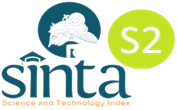Development of Learning Tools for Karyotype Group Types in Class XII High School Genetics Material
DOI:
https://doi.org/10.33477/bs.v14i1.7802Abstract
The Karyotype Group Learning Tool is a learning tool in the form of a learning guidebook which includes lesson plans. Functions to help students in the learning process by implementing karyotype group type learning strategies. The aim of this research is to produce a valid learning tool for karyotype group types in class XII high school genetics material. This type of research is research and development which uses the ADDIE development model. The research was carried out in August 2023- February 2024 at MAN 2 Makassar City. The research subjects were 1 Class XII Biology teacher and 43 Class XII MIPA MAN 2 Makassar City students. The research instrument is an interview guide sheet and a questionnaire sheet consisting of a student needs analysis questionnaire and a validation questionnaire. The data analysis techniques in this research are qualitative and quantitative analysis. Product validity is assessed by a team of experts/validators. The assessment criteria used to determine the degree of validity of learning tools consist of 3 main aspects, namely: (1) the content appropriateness aspect, (2) the construction appropriateness aspect, and (3) the language appropriateness aspect. The results of the research show that the average assessment results from the two validators for the learning tools as a whole is 97.18% which is in the very valid category, so it can be concluded that the karyotype group type learning tool product in class XII high school genetic material is declared valid and suitable for use. in learning.
Keywords: ADDIE Model, Genetics, Karyotype Group Types, Learning Tools
Downloads
Published
Issue
Section
License

This work is licensed under a Creative Commons Attribution-NonCommercial 4.0 International License.
Authors who publish with this journal agree to the following terms: Authors retain copyright and grant the journal right of first publication with the work simultaneously licensed under a Creative Commons Attribution License that allows others to share the work with an acknowledgement of the work's authorship and initial publication in this journal. Authors are able to enter into separate, additional contractual arrangements for the non-exclusive distribution of the journal's published version of the work (e.g., post it to an institutional repository or publish it in a book), with an acknowledgement of its initial publication in this journal. Authors are permitted and encouraged to post their work online (e.g., in institutional repositories or on their website) prior to and during the submission process, as it can lead to productive exchanges, as well as earlier and greater citation of published work.














